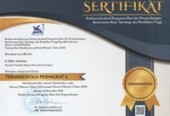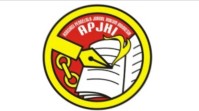Does Judge Has Ex Officio Rights In determining Mut’ah and Iddah?
Abstract
The research aims to analyze the factors why the Religious Court judges do not use their ex officio rights in divorce lawsuits. In divorce case, the defendant who does not have any knowledge about divorce laws generally does not ask for mut'ah and iddah to the plaintiff. The question of this research is what factors caused the judges of Religious Court in South Sumatera, especially Palembang and Kayuagung do not exercise the ex officio rights in determining the quality of mut'ah and iddah due to divorce. This research used normative juridical method with empirical juridical through statute approach and case approach. The results show that during 2017 the Religious Court of Palembang used only once its ex officio rightwhile the Religious Court of Kayuagung did it three times. The reasons are: the judges grant only the petitum of the petitioner solely for the reason that the defendant party does not file a counter-claim, in which judge’s reasoning is based on Article 178 paragraph (3) HIR/189 paragraph (3) RBG that the judge is prohibited from giving a verdict which is more than being petitioned known as the ultra petitum partium, the wife's side as the defendant never attended the hearing, the wife never gave an answer or response to the argument in the application of the plaintiff, the wife was not present in the verdict (verstek), the wife of nusyuz, (does not do her duties as wife) the husband is economically insufficient, the wife does not want to demand the maintenance of mut'ah and iddah, the judge sees the causality. This study suggests that judges should exercise their ex officio rights and give advice as well sufficient information to the wife in order to fulfill her rights and interests as the result of the divorce.
Keywords
Full Text:
PDFReferences
Books
Ibrahim, Johny. 2008. Teori dan Metodologi Penelitian Hukum Normatif. Malang: Bayu Media Publishing.
Manan, Abdul. 2008. Penerapan Hukum Acara Perdata Di Lingkungan Peradilan Agama. Jakarta: Kencana.
Marzuki, Peter Mahmud. 2005. Penelitian Hukum, Jakarta: Kencana Prenada Media Group.
Syaifuddin, M., Sri Turatmiyah, Annalisa Y. 2013. Hukum Perceraian. Jakarta: Sinar Grafika.
Journal Articles
Djoko, Mochamad. 2011. “Reformasi Birokrasi Peradilan Guna Meningkatkan Kepercayaan Masyarakat Terhadap Penegakan Hukum.” Jurnal Varia Peradilan, Year XXVI, No. 304, March 2011.
Fanani, Ahmad Zaenal. 2010. “Hermeneuti-ka Hukum Sebagai Metode Penemuan Hukum Dalam Putusan Hakim.” article in Jurnal Varia Peradilan. No. 297. Year XXV. August 2010.
Hartini. 2009. “Pengecualian Terhadap Penerapan Asas Ultra Petitum Partium Dalam Beracara Di Pengadilan Agama.” Jurnal Mimbar Hukum. Volume 21. No. 2. Juni 2009.
Husaeni, Muh. Irfan. 2014. “Disparitas Putusan Hakim Pengadilan Agama Dalam Menetapkan Mut’ah dan Iddah.” Jurnal Varia Peradilan. Year XXIX No. 342. Mei 2014.
Isna Wahyudi, Muhammad. 2011. “Menjadi Hakim Sensitif Gender.” Jurnal Varia Peradilan. Tahun XXVII. No. 317. Desem-ber 2011.
Ka’bah, Rifyal. 2008. “Permasalahan Perkawinan.” Jurnal Varia Peradilan. Year XXII, No. 271. Juni 2008.
Manan, Bagir. 2013. “Kekuasaan Kehakiman Yang Merdeka.” Jurnal Varia Peradilan. Year XXVII. No. 332. Juli 2013.
Manan, Bagir. 2009. “Konsekuensi Yuridis Keputusan Menteri Yang Dinyatakan Tidak Berlaku Lagi.” Jurnal Varia Peradilan. Year XXIV. No. 286. September 2009.
Nurhidayatuloh, N., & Marlina, L, 2011, “Perkawinan di Bawah Umur Perspektif HAM-Studi Kasus di Desa Bulungihit, Labuhan Batu, Sumatra Utara,” Al-Mawarid Journal of Islamic Law, 11(2).
Pellu, A. Razak. 2014. “Ex Officio dan Keberanian Hakim Mengambil Keputusan.” Jurnal Varia Peradilan. Year XXIX. No. 339. Februari 2014.
Syaifuddin, M. and Sri Turatmiyah. 2012. “Perlindungan Hukum Terhadap Perempuan Dalam Gugat Cerai (Khulu’) di Pengadilan Agama Palembang.” Jurnal Dinamika Hukum. Volume 12. No. 2. Mei 2012.
Tobing, R. D. 2018. Prevention of Child Marriage Age in the Perspective of Human Rights. Sriwijaya Law Review. 2(1).
Tridewiyanti, Kunthi. 2012. “Kesetaraan dan Keadilan Gender Di Bidang Politik “Pentingnya Partisipasi dan Keterwakilan Perempuan di Legislatif.” Jurnal Legislasi Indonesia. Volume 1. No. 1. April 2012.
Internet
Purwosusilo. Hak-Hak Istri Dalam Proses Perceraian, article in http://www.pa-karawang.go.id/artikel/baca/21. [retrieved on April 6, 2017].
Wow, Selama 2016 Ada 1.830 Janda Baru di Palembang quoted from http://www. detiksumsel.com/wow-selama-2016-ada-1830-janda-baru-di-palembang#. [retrieved September 17, 2017].
Legislation.
The 1974 Law No.1 on Marriage (The State Gazette No. 1 of 1974).
The 1989Law No. 7 on Religious Courts (State Gazette and the State Gazette Addi-tional No. 3400 of 1989).
The 1975 Government Regulation of the Republic of Indonesia No. 9 on Implementa-tion of The 1974 Law No.1 on Marriage.
The Presidential Instruction No. 1 of 1991 on Dissemination of Compilation of Islamic Law (Compilation of Islamic Law).
DOI: http://dx.doi.org/10.28946/slrev.Vol3.Iss2.249.pp187-198
Refbacks
- There are currently no refbacks.

Sriwijaya Law Review (SLRev) ISSN: 2541-5298 | e-ISSN: 2541-6464 is licensed under a Creative Commons Attribution-ShareAlike 4.0 International License.






















